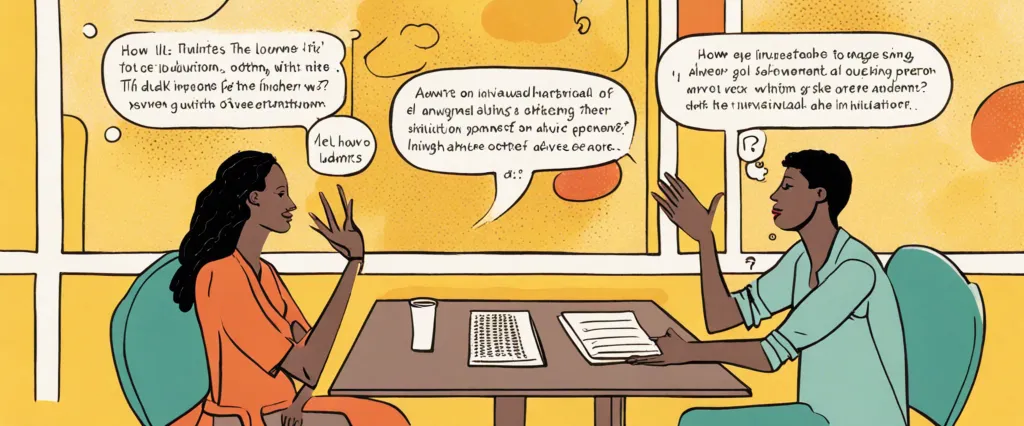
In the vast landscape of self-help literature, two books have emerged as powerful guides for individuals seeking personal growth, improved communication skills, and an enhanced sense of self. Unfu*k Yourself, written by Gary John Bishop, and How to Talk to Anyone, penned by Leil Lowndes, are celebrated works that delve into the complexities of human behavior and offer practical advice on how to navigate life’s challenges.
Unfu*k Yourself, with its unmistakable tone and straightforward language, grabs readers’ attention from the very first page. With refreshing bluntness, Bishop challenges conventional wisdom and presents a no-nonsense approach to overcoming self-imposed limitations. By illuminating the power of self-talk and the impact it has on our daily lives, he encourages individuals to confront their fears, embrace responsibility, and redefine their narratives. Bishop’s words resonate with those seeking a wake-up call, urging them to take charge of their present circumstances and forge a path towards personal fulfillment.
In sharp contrast, Lowndes weaves a captivating narrative in How to Talk to Anyone, skillfully navigating the intricacies of human interaction. With a keen emphasis on mastering the art of conversation, she leads readers on a journey through techniques and strategies that empower individuals to effortlessly connect with others. Lowndes’ book is a treasure trove of wisdom, offering practical advice on body language, non-verbal cues, and conversational pointers that amplify rapport-building efforts. Whether seeking to thrive in social or professional settings, her insights provide invaluable tools for forging deep connections with others.
While each book presents unique perspectives, they both share a common goal: to empower individuals on their journey towards self-improvement. Unfu*k Yourself prompts readers to confront their inner demons head-on, while How to Talk to Anyone empowers individuals in their pursuit of healthy relationships through effective communication. Despite their differences in tone and focus, both books present a compelling case for the transformative power of personal growth and interpersonal connection.
Through a comparative study of these two enlightening works, this exploration will delve into the underlying philosophies, strategies, and approaches. By examining their distinctive strengths and weaknesses, we seek to uncover the nuances that distinguish these books and their potential to catalyze personal growth. As we embark on this literary journey, we invite you to explore the insights within each book and chart a course towards a more fulfilling and interconnected existence.
Brief Summary of Two Books
Unfuk Yourself by Gary John Bishop
“Unfu*k Yourself” by Gary John Bishop is a self-help book that aims to empower readers to take control of their lives and change their thinking patterns to overcome obstacles.
The book emphasizes the importance of taking responsibility for one’s own happiness and success, urging readers to move away from negative thoughts and self-sabotaging behaviors. Bishop argues that the key to making lasting changes lies in changing one’s internal dialogue and belief system.
Bishop provides practical advice and strategies, encouraging readers to face their fears, confront their past, and let go of limiting beliefs. He emphasizes the importance of taking action, setting clear goals, and developing disciplined habits.
Throughout the book, Bishop challenges conventional wisdom and frequently uses strong language to grab the reader’s attention. He believes that adopting a no-nonsense attitude is vital for personal growth and transformation.
Overall, “Unfu*k Yourself” offers readers a straightforward and direct approach to navigating life’s challenges, empowering them to overcome self-imposed limitations and create the life they desire.
How to talk to anyone by Leil Lowndes
“How to Talk to Anyone” by Leil Lowndes is a self-help book that provides practical strategies and techniques for effective communication and building strong interpersonal connections. The book explores various scenarios, such as socializing at parties, networking events, or even job interviews, and offers actionable advice on how to make a positive and lasting impression on others.
The author emphasizes the importance of non-verbal communication, body language, and active listening while engaging in conversation with others. She presents techniques to make conversations more engaging by asking open-ended questions, employing positive body language cues, and actively showing interest in others’ experiences and opinions. Lowndes also covers the art of small talk, offering tips on finding common ground, using humor effectively, and handling awkward moments.
In addition, the book addresses various challenges and insecurities individuals may face during social interactions. It provides strategies to overcome shyness, reduce anxiety, and handle different personality types. Furthermore, the book sheds light on cultural differences in communication, emphasizing the importance of understanding and respecting diverse perspectives.
Overall, “How to Talk to Anyone” is a practical guide for developing effective communication skills, boosting self-confidence, and building stronger connections with others in both personal and professional settings.
Comparison between Two Books

Similarities in Psychology
Parallel: “Unfu*k Yourself” by Gary John Bishop and “How to Talk to Anyone” by Leil Lowndes
Both books tap into principles of psychology to provide readers with practical guidance on improving their personal lives and relationships. Here are some key similarities in terms of psychological aspects covered in both books:
1. Self-talk and mindset: Both books emphasize the importance of being aware of one’s self-talk and how it influences thoughts, emotions, and behaviors. Bishop’s book advocates for taking control of one’s internal dialogue and adopting a more empowering mindset, while Lowndes discusses the impact of self-talk on confidence and offers tips on developing a positive internal narrative.
2. Confidence-building: Both authors address the psychological component of building confidence. Bishop highlights the power of confidence in overcoming obstacles and achieving personal growth, while Lowndes focuses on improving interpersonal communication by boosting self-assurance and projecting confidence in social interactions.
3. Overcoming fear and self-doubt: Both books delve into the psychological barriers of fear and self-doubt, offering insights on how to overcome these limiting beliefs. Bishop focuses on identifying and challenging the fears that hold us back from reaching our potential, while Lowndes provides strategies for reducing social anxiety and building resilience to overcome self-doubt.
4. Mindfulness and self-awareness: Both authors stress the importance of self-awareness and mindfulness in their respective books. Bishop encourages readers to be fully present and aware of their thoughts and emotions, promoting a more conscious and intentional approach to life. Similarly, Lowndes emphasizes the significance of mindful listening and paying attention to others’ nonverbal cues to enhance communication skills.
5. Emotional intelligence: Both books emphasize the role of emotional intelligence in personal relationships. Bishop talks about the importance of emotional awareness and regulation to make healthier choices and maintain healthier connections with others. Lowndes provides insights on understanding others’ emotions, building rapport, and fostering deeper connections through empathetic communication.
Overall, both “Unfu*k Yourself” and “How to Talk to Anyone” delve into various aspects of psychology, offering practical advice on rewiring mindset, overcoming fears, building confidence, practicing mindfulness, and fostering better relationships.
Divergences in Psychology
Unfu*k Yourself by Gary John Bishop and How to Talk to Anyone by Leil Lowndes are both self-help books aimed at improving personal development and communication skills. While they may share some similarities, they diverge significantly in their approach to psychology.
Unfu*k Yourself primarily focuses on the concept of taking personal responsibility and changing one’s mindset to overcome obstacles. Gary John Bishop emphasizes the importance of embracing radical personal accountability as a means to improve one’s life. He argues that by accepting responsibility for one’s actions and reactions, individuals can reclaim control over their lives and achieve their goals.
On the other hand, How to Talk to Anyone delves more deeply into the psychology of communication and interpersonal relationships. Leil Lowndes explores various techniques, strategies, and psychological insights to empower readers with effective communication skills. She emphasizes the significance of understanding others’ perspectives, building rapport, and utilizing non-verbal cues to create meaningful connections.
The divergence in psychology between these books lies in their respective focal points. Unfu*k Yourself leans more towards the individual’s inner psychology, urging readers to confront self-limiting beliefs and change their internal narrative. Bishop’s book encourages self-reflection, providing motivation and tools to rewire one’s mindset for growth and success.
Conversely, How to Talk to Anyone concentrates on the psychology of human interaction. Lowndes introduces readers to psychological principles such as mirroring, active listening, and empathy to improve communication skills. Her book delves into the intricacies of social dynamics, teaching readers how to navigate conversations and connect with others effectively.
Another notable divergence can be seen in the tone and language used in the respective books. Unfu*k Yourself employs straightforward and blunt language, which may resonate better with readers seeking a no-nonsense approach. In contrast, How to Talk to Anyone takes a more nuanced and conversational tone, with practical examples and anecdotes to illustrate its psychological concepts.
Overall, while both Unfu*k Yourself by Gary John Bishop and How to Talk to Anyone by Leil Lowndes aim to empower readers, they diverge regarding the psychological aspects they emphasize. Unfu*k Yourself focuses on personal accountability and inner mindset transformation, while How to Talk to Anyone delves into the psychology of communication and building interpersonal connections.

Conclusion
Both “Unfu*k Yourself” by Gary John Bishop and “How to Talk to Anyone” by Leil Lowndes offer valuable insights and practical advice, but their focuses differ.
“Unfu*k Yourself” primarily focuses on personal development and motivation, encouraging readers to take responsibility for their lives, challenge limiting beliefs, and develop a proactive mindset. It emphasizes the importance of self-talk, letting go of excuses, and taking action to create the life you desire.
On the other hand, “How to Talk to Anyone” delves into the art of communication and offers strategies for improving interpersonal skills. This book provides tips on building rapport, handling social situations, and effectively communicating with others. It covers a range of scenarios, from professional interactions to dating and networking.
Which book is more worthy of reading depends on your personal goals and interests. If you’re seeking motivation, self-improvement, and practical tools to transform your mindset, “Unfu*k Yourself” may be a great choice. But if you’re looking to enhance your communication skills and improve your social interactions, “How to Talk to Anyone” could be more relevant to you.
Consider your current needs, areas of focus, and what you hope to gain from reading either book to determine which one aligns more closely with your goals.


